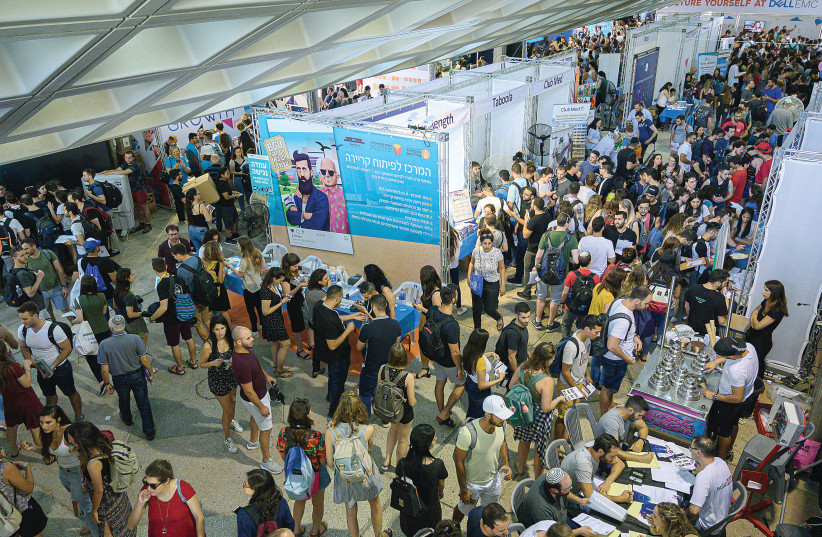The number of job seekers in Israel dropped by more than 35% in July to 291,000, Israel Employment Services (IES) said on Monday.
The improvement was attributed to the Finance Ministry’s decision to limit unemployment benefits for people under age 44 at the end of June, IES said.
The new data is in line with a report last week from the Central Bureau of Statistics, which found that Israel’s broad unemployment rate fell to 7.6% in the second half of July, and 8.4% for the whole of the month, compared with 9% in June.
While many job seekers are returning to work, IES noted that there are still many job seekers who are having difficulty returning to work and are looking for an alternative to unemployment benefits. There are also many job seekers who have not yet returned to work and seem to be waiting for a better time to start work, either because they are upgrading their skills, waiting for a better opportunity, or simply waiting until the end of summer vacation.
Also, people from high socio-economic sectors are returning to work in higher degrees than those in lower classes, with haredim and Arabs coming back in smaller numbers. Younger workers are also coming back more rapidly than older workers, IES said.

Most likely, the market is in a waiting period, and as long as we do not enter a fourth lockdown, the rate of return to work is expected to increase after the holidays, IES said. The end of the summer and the eve of the holiday season is often characterized by seasonal layoffs and low hiring trends.
“We expect that at the end of the holiday period there will be an increase in the rate of return to work,” said IES CEO Rami Graur. “We are working to ensure that the return to work is optimal and allows job seekers not only to return to the work cycle but also to persevere and advance in it.”
It should be noted that while stores and restaurants are struggling to hire for low-skilled positions, the job market is very competitive in the hi-tech sector, where salaries are high and many companies are flush with cash due to soaring levels of investment there.
